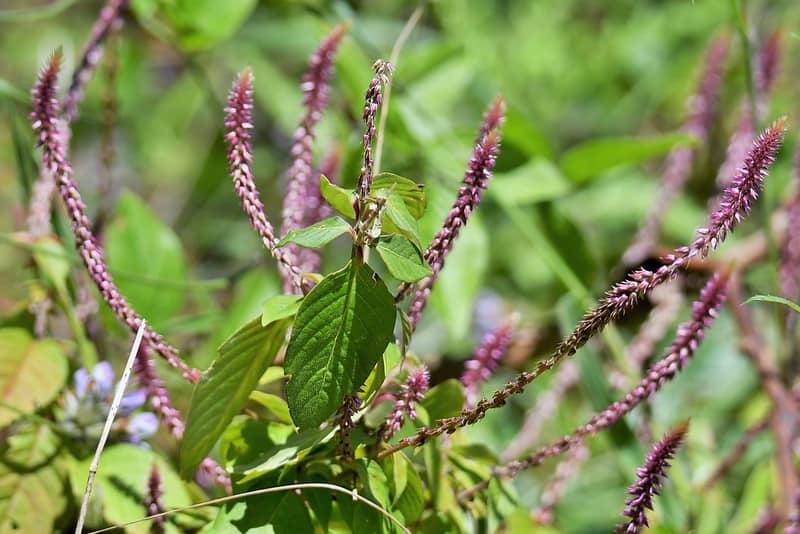The Apamarga tree, scientifically known as Achyranthes aspera, is a medicinal plant that has been used in traditional systems of medicine, including Ayurveda and Unani. It is a hardy shrub that is native to Asia, Africa, and parts of Europe. Here are some commonly attributed benefits of the Apamarga tree:
- Digestive Health: Apamarga is believed to have digestive stimulant properties. It is traditionally used to alleviate digestive issues such as indigestion, bloating, and loss of appetite. The leaves and seeds of the Apamarga tree are commonly used in traditional formulations for digestive support.
- Anti-inflammatory Effects: Apamarga has been recognized for its anti-inflammatory properties. It is believed to help reduce inflammation and may provide relief from conditions such as arthritis, joint pain, and inflammation of the digestive system.
- Anti-microbial and Anti-parasitic Activity: The Apamarga tree is known for its potential antimicrobial and antiparasitic properties. It is believed to have activity against certain bacteria, fungi, and parasites. In traditional medicine, it is used to treat infections and skin conditions caused by microorganisms.
- Respiratory Health: Apamarga is traditionally used to support respiratory health. It is believed to have expectorant properties, which may help in relieving coughs, bronchitis, and other respiratory ailments.
- Wound Healing: The Apamarga tree is known for its wound healing properties. The leaves and root extracts are traditionally used topically to promote the healing of cuts, wounds, and ulcers.
- Diuretic Properties: Apamarga is believed to have diuretic effects, which may help increase urine production and promote the elimination of toxins from the body.
- Menstrual Disorders: In traditional medicine, Apamarga is used for managing menstrual disorders such as irregular periods, menstrual cramps, and excessive bleeding. It is believed to have a balancing effect on the female reproductive system.
Its important to note that while the Apamarga tree has a long history of traditional use, scientific research on its specific benefits is still limited. As with any herbal remedy, its advisable to consult with a qualified healthcare professional or practitioner before using Apamarga products, especially if you have any underlying health conditions or are taking medications. They can provide appropriate guidance based on your individual circumstances.
Note: Before receiving all the puja material, make a video of it in front of the courier boy to make it clear that you have not done any fraud otherwise the product will not be returned.
